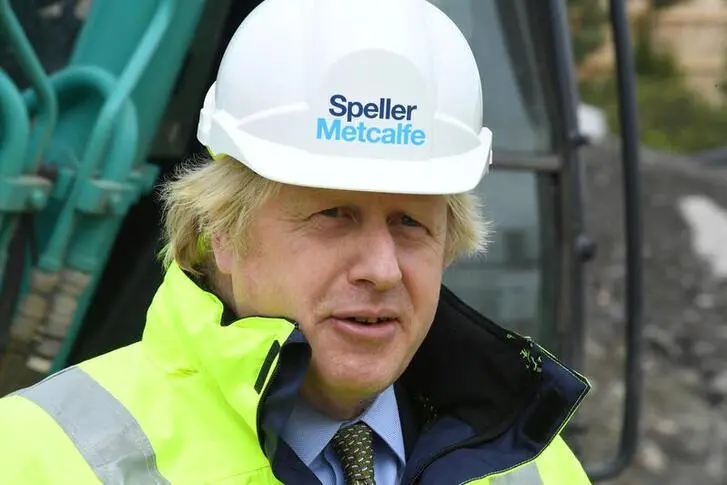PHOTO
LONDON - Prime Minister Boris Johnson promised to shake Britain's economy out of its coronavirus-induced crisis on Tuesday, by fast-tracking infrastructure investment.
As Britain emerges from lockdown, Johnson is looking to move past criticism of his government's handling of the pandemic with a plan to repair the economic damage and reshape the country.
"We cannot continue simply to be prisoners of the crisis," Johnson said. "It's absolutely vital for us to set out the way ahead, so that everyone can think and plan for the future, short, medium and long term."
His message, delivered at a college in the central English town of Dudley, was overshadowed by the announcement of a fresh lockdown in Leicester, just 50 miles away, where COVID-19 infections are surging.
Nevertheless, with an exhortation to "build, build, build", Johnson announced plans to speed up government infrastructure spending.
Promising not to cut spending, he is expected to compare his plan to former U.S. President Franklin D. Roosevelt's "New Deal" programme of the 1930s, which included job-creating public work projects to help the United States recover from the Great Depression.
Tuesday's headline spending announcement of 5 billion pounds ($6.13 billion), announced ahead of the speech, amounts to around 5 percent of gross public sector investment last year. Most had already been announced and is only being spent sooner than planned.
Britain's recent history also shows that big infrastructure projects are difficult to deliver.
A new underground train line in central London is over budget and late, as is a north-south high speed rail link. After decades of discussing airport expansion at London Heathrow, the project remains mired in legal challenges.
The 5 billion pounds of accelerated investment will be made up of projects including hospitals, schools and roads. ($1 = 0.8153 pounds)
(Additional reporting by Elizabeth Piper, Guy Faulconbridge and Andy Bruce, editing by Stephen Addison, Nick Macfie and Michael Holden) ((william.james@thomsonreuters.com; +44 207 542 3374; Reuters Messaging: william.james.thomsonreuters.com@reuters.net))





















